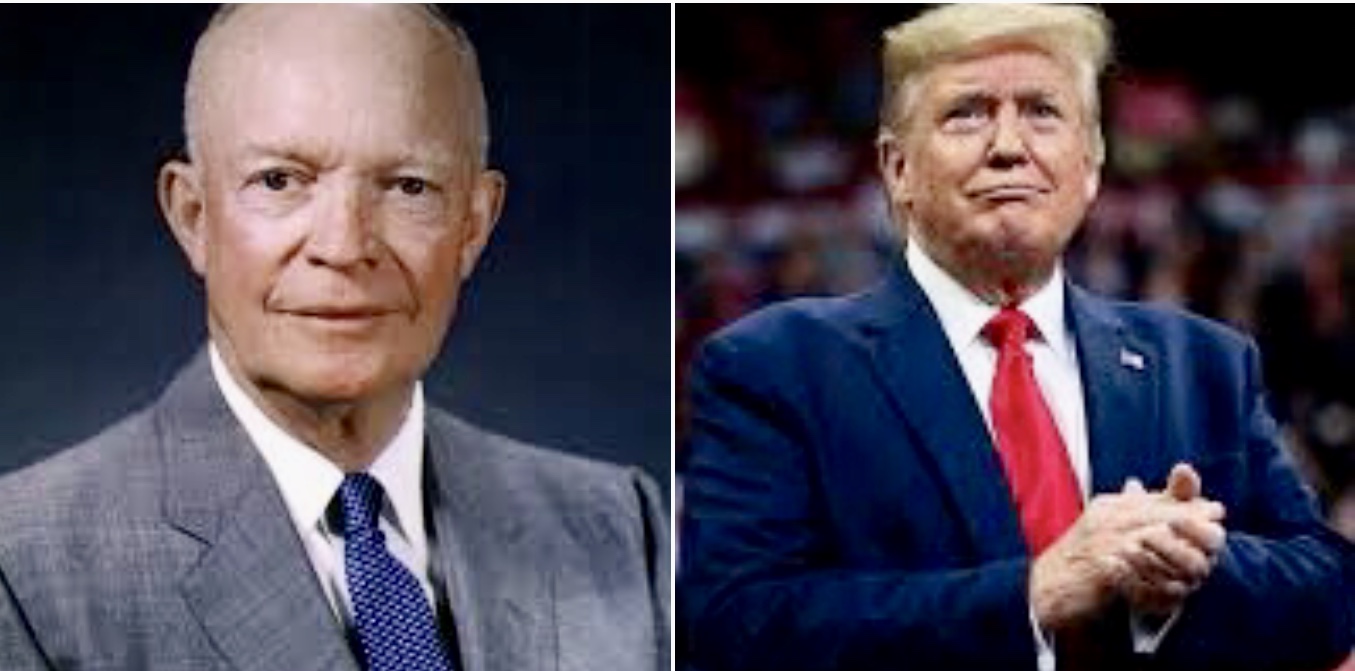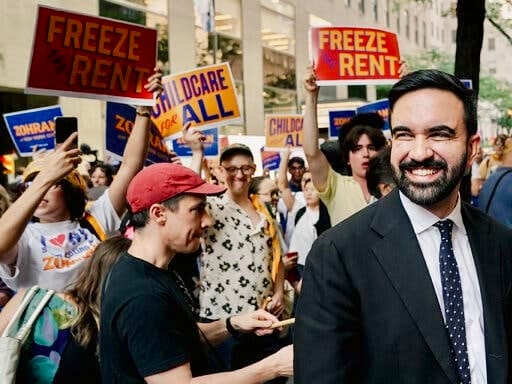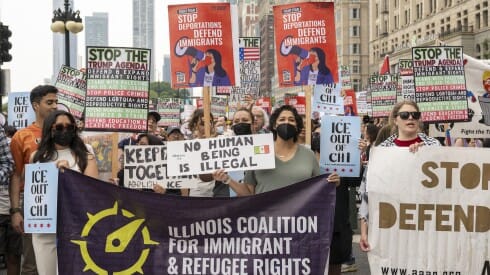The GOP’s sad descent from the General to the Donald
When I first became politically aware, around the age of 10, I liked Republicans.
I was too young to understand President Harry S Truman. I had some glimmers about him, but did not appreciate his command of the presidency until I was much older.

Dwight David Eisenhower became the Republican President when I was about 11. The World War II hero led America through its greatest expansion of wealth and freedom we ever experienced.
I lived in New York, and the newspapers my parents read were against him, but I was not.
One criticism was that he didn’t do much. He spent too much time on the golf course, his critics said. As a Republican, he believed less government was better and a rising tide was lifting most boats — although not all boats. Among the boats not lifted were those of Black Americans, most of whom were held in the metaphorical bonds of bigotry, prejudice, and discrimination.
The U.S. Supreme Court in 1954 outlawed school segregation, something that swaths of America did not want. Some Southern governors, all Democrats, flouted the rule of law.
In September 1957, the Republican President did the unthinkable for an American military man — he ordered his beloved 101st Airborne into an American city to protect Black students, the courageous Little Rock Nine, who were integrating Central H.S.
Most of America cheered. Eisenhower Republicanism was the coin of the realm, nationally.
Around the same time, my two New York senators were Republicans — Kenneth Keating and Jacob Javits.
Today, they would seem like conservative Democrats. They were serious, smart men.
When I got to Philly in the mid-60s, we had a Republican district attorney, Arlen Specter, who became a Republican U.S. senator, a moderate by any measure. Thacher Longstreth was a Republican member of City Council, and I always voted for him, as well as Specter. I did not agree with all of Thacher’s political positions, but I knew this about him: He deeply loved Philadelphia and every action he took he believed would make things better, he was totally honest, and he had a self-deprecating sense of humor.
Most Philadelphia-area Republicans are drawn along those lines — they are fiscally conservative, but socially moderate. They are men and women you can talk to. They certainly are not the same kind of Republican you would find in Utah, Wyoming, or Arizona.
Philly Republicans, by and large, are pretty centrist, but they are now a fringe of what was once the Grand Old Party.
Some 70% of Republicans say they believe the 2020 election was stolen, and they manage to believe this without a shred of proof. They believe it — or say they believe it — only because Donald J. Trump said it. They are a Mao-like cult of personality.
In the words of gone-to-bananas Rudy Giuliani, who once had the nation’s respect, “We’ve got lots of theories, we just don’t have the evidence.”
We just don't have the evidence.
We just don’t have the evidence.
I am repeating that for the 70% who say they believe in the tooth fairy the election was rigged.
They believe the Big Lie despite dozens of recounts, despite scores of lawsuits rejected even by judges appointed by Trump. Why were they rejected? Because they didn’t have the evidence. You don’t get to have a trial because you’d like to. You have to have standing as a litigant — and have evidence to present to the court.
In the case of an alleged nationwide fraud, how hard would it be to come up with something, some shred of evidence that enough votes were rigged to change the outcome? There was none and Trump’s inner circle told him so.
In the mid 19th Century, there was something called the Know Nothing Party that polluted American politics.
At least some of their beliefs were anchored in fact.
They look like Mensa members contrasted with Republicans who buy the Big Lie that Trump won, without a shred of evidence.
Thursday night Fox’s Tucker Carlson bemoaned that Republicans had moved from leading in a generic preference poll over Democrats, to trailing them in a year that should belong to the opposition party, according to history.
He couldn’t figure out why, and went to his default of blaming GOP leader Mitch McConnell, stupidly suggesting McConnell didn’t really want to win. Without a shred of evidence, of course.
He mentioned that Pennsylvania was a fruit ripe for GOP candidates at the start of the year, but they are trailing in fund-raising and in the polls.
It’s not McConnell.
Another option is right before Tucker’s eyes: Trump has made the Republican brand toxic. Fair-minded people are fleeing from it.
Eisenhower would be in tears.



